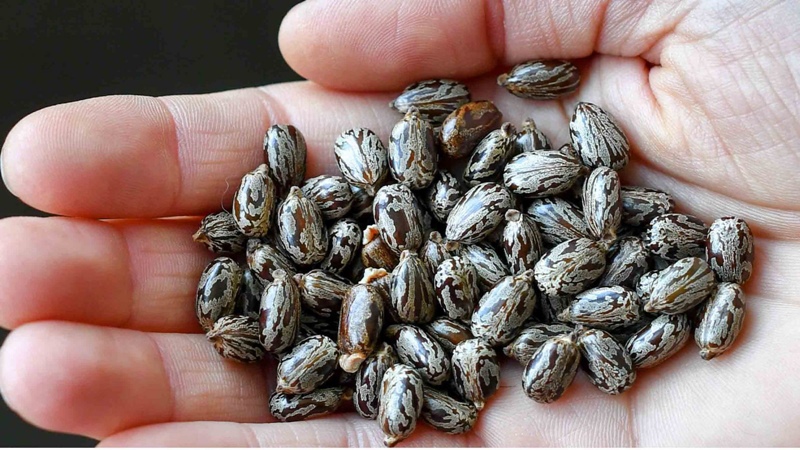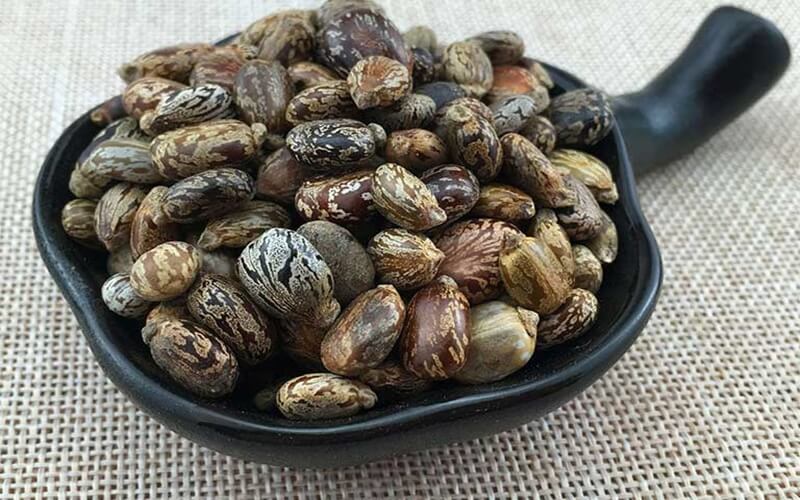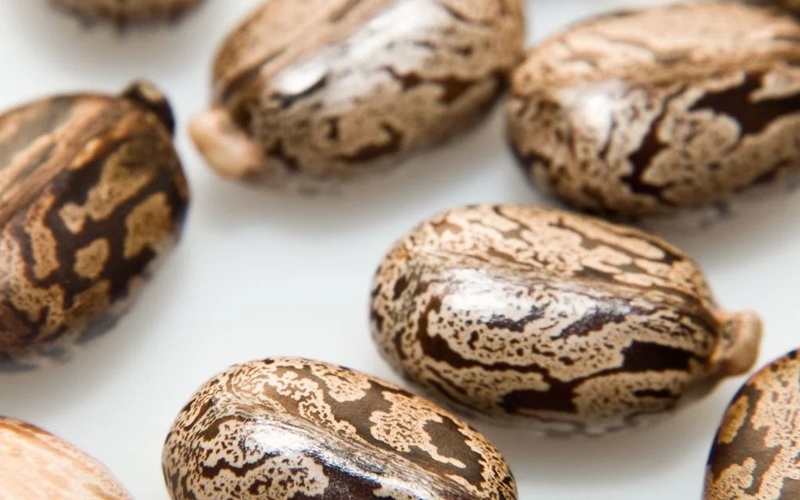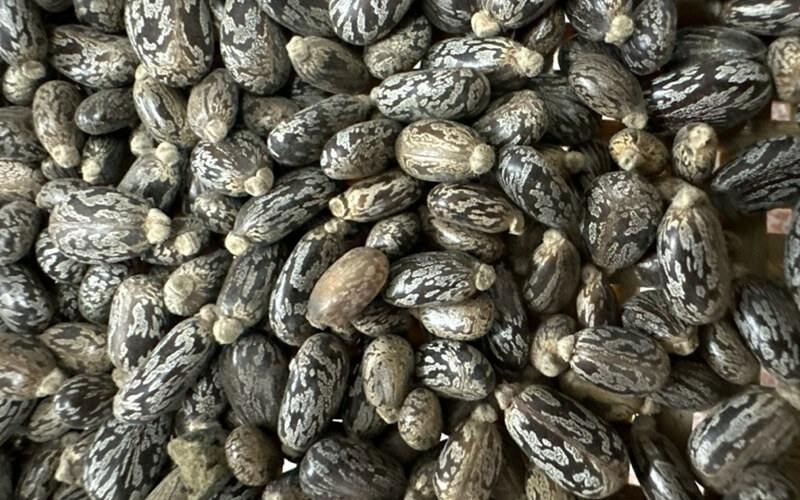Castor seeds are a nutrient-rich food source, often used as a medicinal remedy. In today’s article, let’s explore the wonders of castor seeds and their health benefits.
1 What are Castor Seeds?
 What are Castor Seeds?
What are Castor Seeds?
Castor seeds are obtained from the castor plant (also known as purple castor, red castor, or castor bean). The scientific name of the castor plant is Ricinus communis L., and it belongs to the Euphorbiaceae family. The castor fruit is usually light purple or green and has soft spines. Each fruit typically contains 2-3 seeds. Castor seeds are oval-shaped, flat, with a smooth surface, and a brownish-grey color.
2 Chemical Composition of Castor Seeds
 Chemical Composition of Castor Seeds
Chemical Composition of Castor Seeds
Castor seeds contain 40-50% oil, 25% albuminosid – a crystalline substance with nitrogen (fusidic), malic acid, sugar, cellulose, salts, ricin, and ricinin, and lipase enzyme.
Additionally, cold-pressed castor oil contains various organic compounds such as and .
3 Benefits of Castor Seeds
 Benefits of Castor Seeds
Benefits of Castor Seeds
Castor seeds are valued in traditional Chinese medicine for treating skin ailments, joint pain, and hemorrhoids. According to Chinese medicine practitioners, castor seeds have a sweet and mildly spicy taste and are considered neutral in nature, making them useful for detoxification, reducing swelling, and eliminating toxins. Furthermore, the seeds contain essential oils that promote blood flow, relieve pain, and act as a mild laxative. Here are some additional benefits of castor seed oil for your health:
-
Treat skin disorders such as fungal infections and acne.
-
Effective contraception and treatment for syphilis, uterine prolapse, and rectal prolapse.
-
Relieve constipation and dysentery.
-
Support the treatment of otitis media and migraines.
-
Heal skin abscesses and swollen lymph nodes caused by tuberculosis.
4 Are Castor Seeds Poisonous?
 Are Castor Seeds Poisonous?
Are Castor Seeds Poisonous?
Castor seeds are typically used to extract castor oil, but the oil contains ricin, a toxic substance that can cause health issues if ingested. Consumption of ricin can lead to headaches, muscle cramps, cold sweats, fever, and in severe cases, heart failure and death. Therefore, medical professionals advise against ingesting castor seeds and recommend using them only for external applications.
It is also essential to use castor seeds in moderation. Experts suggest a daily intake of no more than 20 grams of seeds to maintain optimal health.
Castor seeds are nutrient-rich and offer medicinal benefits, but they also contain toxins. Use them cautiously and consult a healthcare professional before incorporating them into your treatment regimen.
Source: Vinmec.com


































